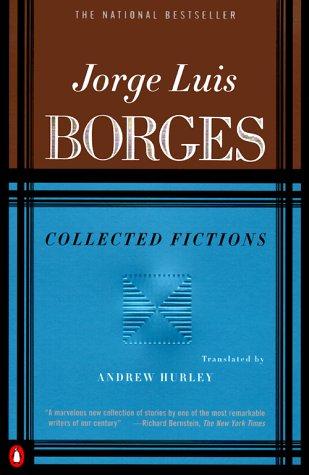Remy Rose reviewed Collected Fictions by Jorge Luis Borges
Review of 'Collected Fictions' on 'Storygraph'
4 stars
I chanced upon this book during an impromptu street fair in Phoenixville, where I lived as a poor Maths student. I was, of course, familiar with the idea of Borges, and greatly enamored of the "Magical Realism" he popularized. However, I had not had the opportunity to read the man himself. Heedless of the price, I seized the book; in my zeal I paid scant attention to the vendor.
At this point I must suggest that the one star I've held back most likely reflects poorly on me, as opposed to the author. For most of the early half of the 20th century, Borges had little influence outside Argentina. For this reason it is understandable that he often relies so heavily upon context. Many of his stories do not, I think, age or travel well. Having little knowledge of 1940's Buenos Aires makes them, while short, somewhat interminable for me. This does not largely detract from the work as a whole, and I would not recommend attempting to skip such stories. Fortunately for those with the patience, the translator has provided much of the needed context in the notes.
Before I began the book, I tried to determine just how complete a collection it was. It quickly became apparent that what I had was not any standard edition, but some manner of pre-release copy. It had no dates; no publishing information at all, in fact. It seemed at first otherwise unremarkable, bearing no features more unusual than one would expect from a slightly early draft.
My favorite fictions, much as I expected, were fantastical. However, unlike many classical authors, the concepts expressed therein were utterly new to me. I had not seen their like reproduced in any modern works. "The Library of Babel" was utterly confounding in the most delightful way, and should be required reading. By that I mean the story, not the library itself; such a place would best be avoided if one values their sanity. "Tlon, Uqbar, Orbis Tertius" was particularly inspiring. The style of writing, so matter of fact, lends the inherently ridiculous a sense of credibility. Other favorites include "The Other Death," "The Aleph," "Ulrikke," "There are More Things," "A Weary Man's Utopia," "The Disk," "The Book of Sand," "Blue Tigers," "The Zahir," and more.
There is little one can say of Borges that might not more efficiently get across by simply reading his work. It is that concise. Saying he chooses his words well is an understatement; A single word often unlocks the meaning of an entire story. I must confess that many of them surely escaped me. Anything I perceived as trivial, I suspect, had much more import than I realized.
At the end of "Shakespeare's Memory," where other editions insist the translator's note should begin, my copy instead has one more entry; a fantastical one. I cannot begin to discuss this prose with the slightest clarity. As Borges himself said, language requires shared experience, and there is nothing so inexplicable as what I read. It was paradoxically the shortest of all the stories, yet longer than any imaginable saga. It was as if all the preceding work had been condensed, so that the quality of quintessential Borges approached infinity. It has since become difficult to imagine anyone ever reading anything else; any other option is subsumed, a subset, of this. I began this work of inconceivable brilliance whilst riding the subway, and by the time I again became aware of my surroundings, I was many, many hours beyond my destination. The book was gone.

